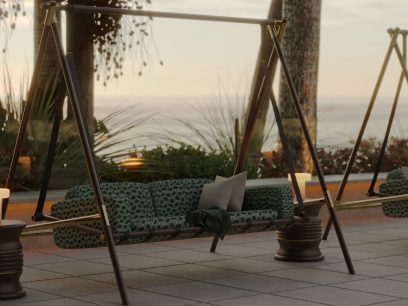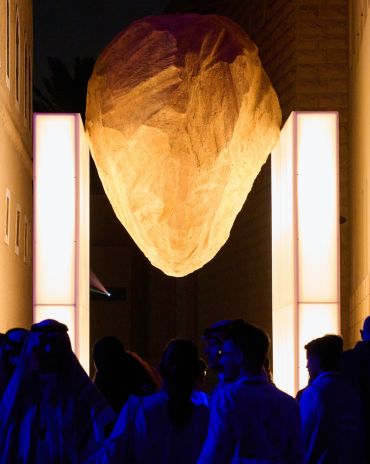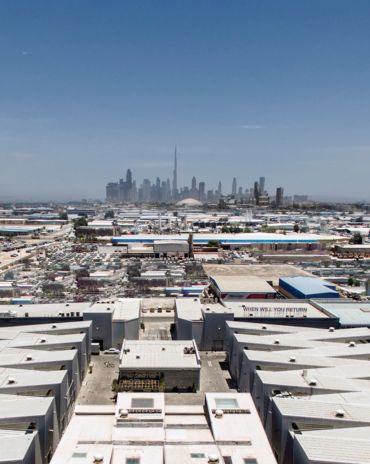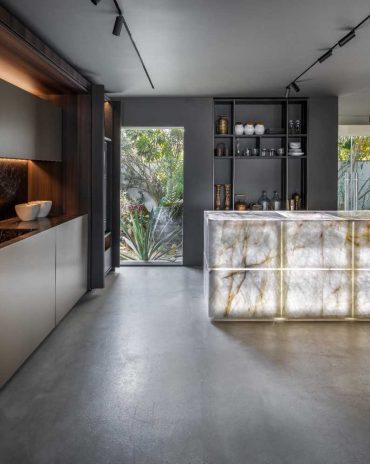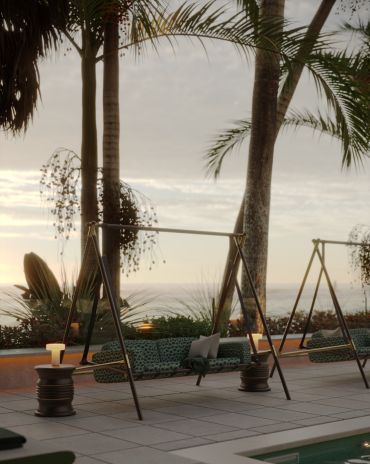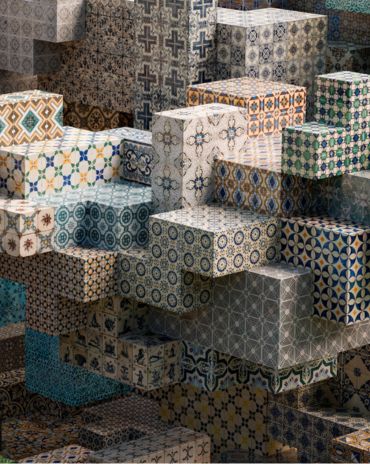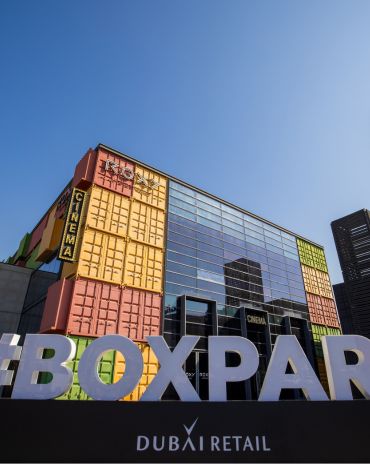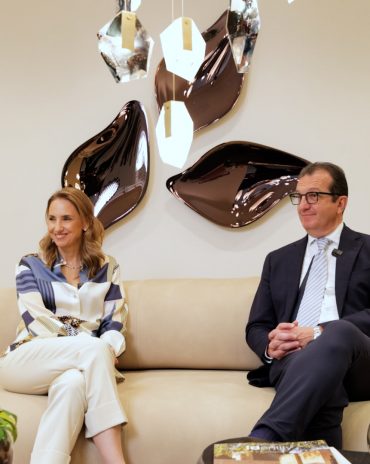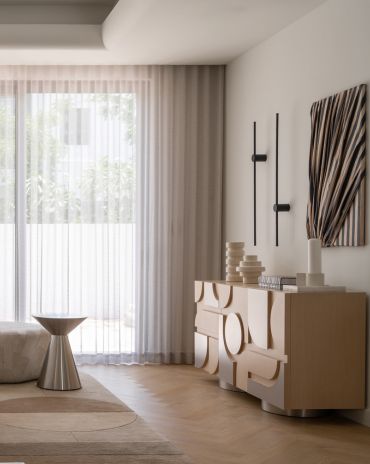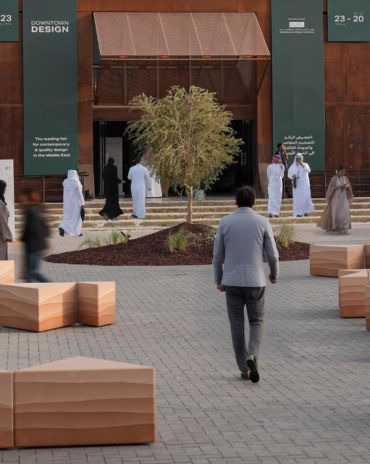Copyright © 2025 Motivate Media Group. All rights reserved.
Dubai Frame: Portrait of a city
The world’s largest picture frame is a unique architectural attraction on the Dubai skyline.
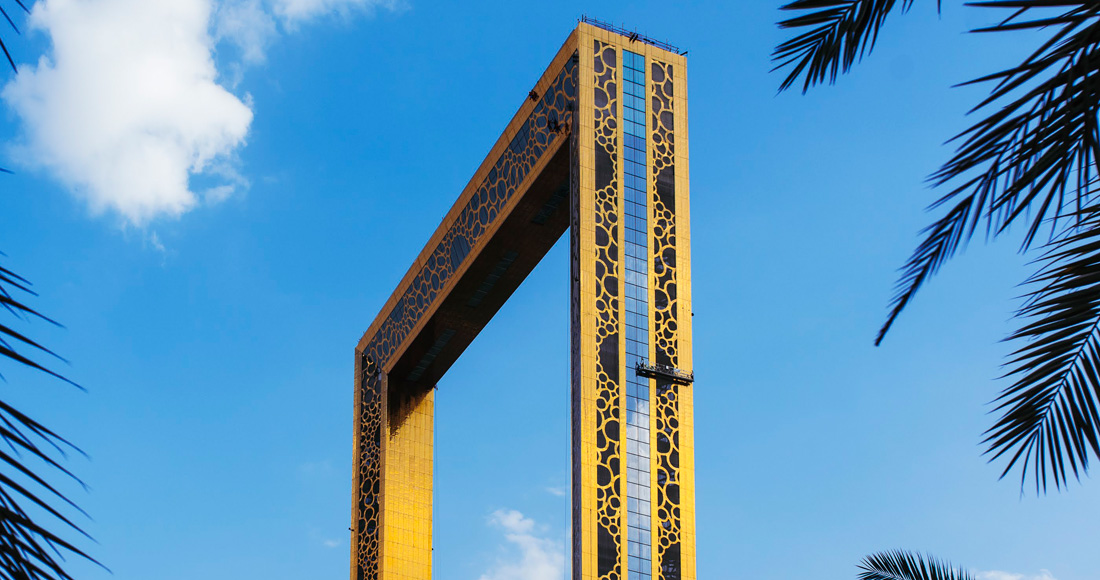
Called simply Dubai Frame, one of the UAE’s newest cultural and architectural landmarks perfectly outlines the sprawling old and new city vistas.
Elegant and unobtrusive, the 150-metre-tall and 93-metre-wide structure is based on a concept design by Rotterdam–based Mexican architect Fernando Donis, and designed around the Golden Triangle ratio, a mathematical formula used by architects – from the ancient Greeks to Le Corbusier – to achieve balance and aesthetic beauty.
The idea behind the architect’s original concept was that instead of creating a solid building he created a void that would frame current and future city landmarks.
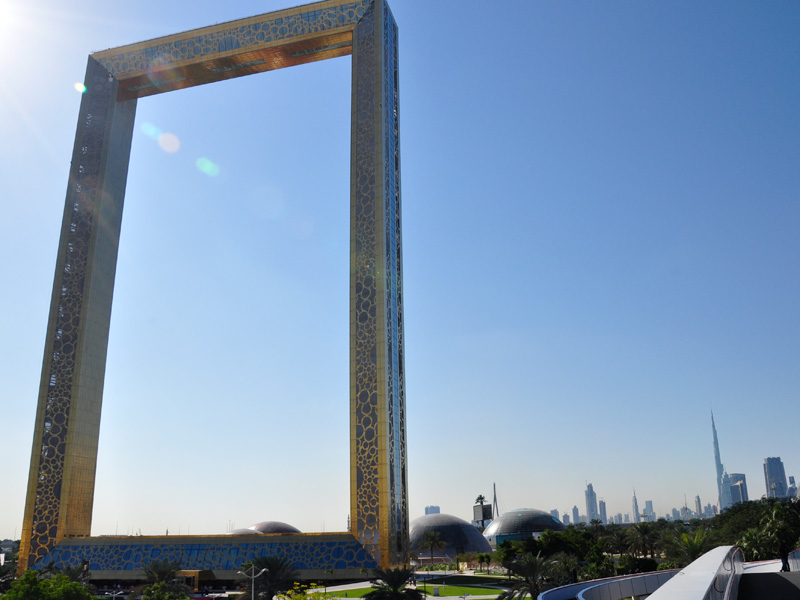
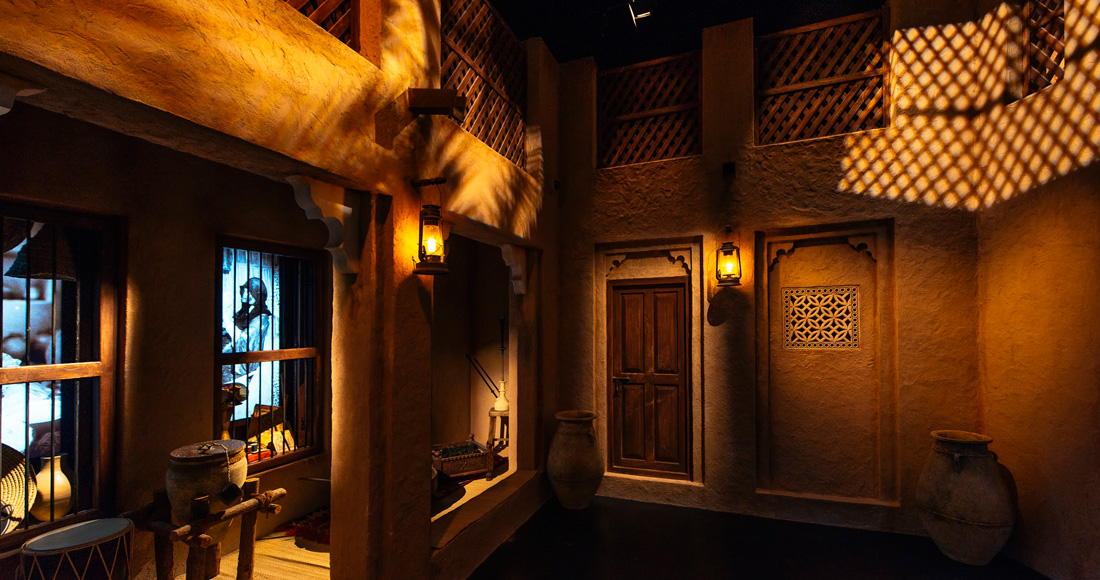
The project has unfortunately been tarnished with controversy – however, after almost a decade in the making, Dubai Frame stands magnificently in Zabeel Park, providing just what it was designed to provide: a perfect frame of the cityscape.
It’s estimated that more than 3000 experts, architects, engineers, technicians and labourers worked on this eye-catching structure to ensure its stability and security. Extensive wind-tunnel tests were conducted, and amendments subsequently made to the original design – such as porous cladding and a building damper to reduce the impact of the wind.
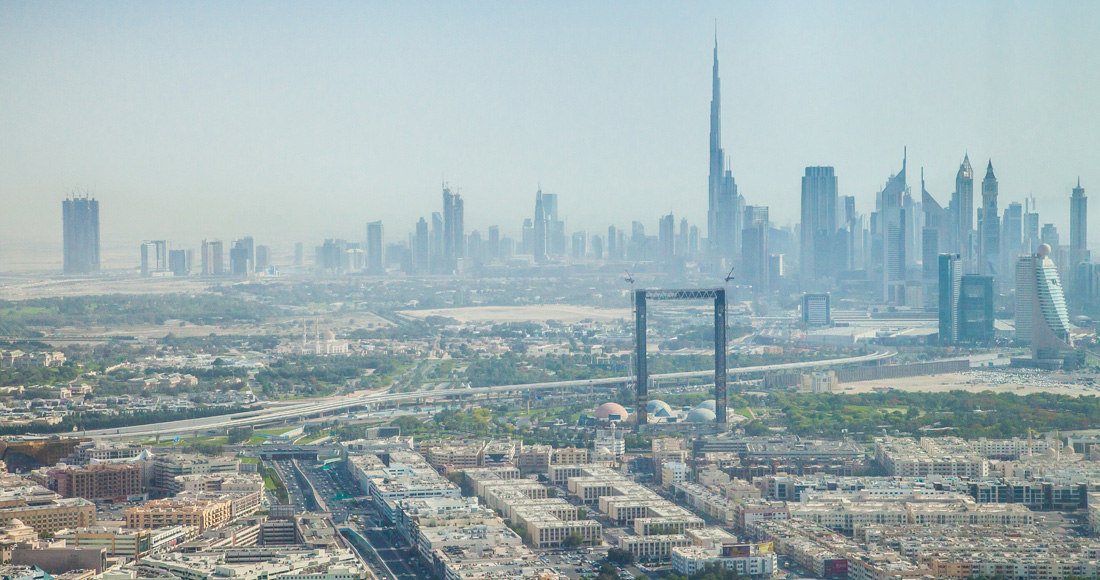
Dubai Frame in the making in 2016
Over 2000 tonnes of steel, more than 2900 square metres of laminated glass and 15,000 metres of gold cladding have been used in its construction.
Over the years decorative embellishments were added to the original design, making it more ostentatious and intricate than initially envisioned. For example, following the release of the Expo 2020 logo, adaptations were made to include a gold ring design on the façade.
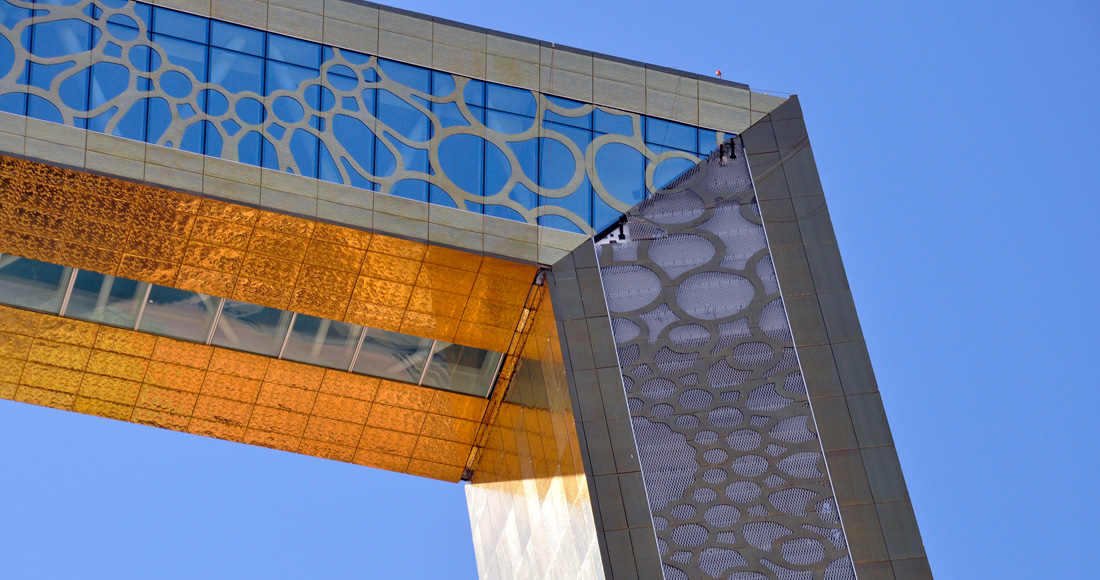
The structure is not just an attractive addition to the skyline; inside there are exhibition spaces that highlight Dubai’s heritage and future visions.
Four German-engineered and custom-designed panoramic ThyssenKrupp elevators soar up some 48 floors in 75 seconds on their way to the pièce de résistance: the 93-metre-long walkway of the observation deck that offers impressive 360-degree views.
The observation deck was lifted into place over a two-day period, rising by 3.5 millimetres per second on two hydraulic jacks, each capable of lifting 300 tonnes.
Some 116 square metres of switchable smart glass that changes from translucent to transparent when visitors walk on it has been installed in the observation bridge, allowing for breath-taking views of the ground below.
The walkway links the two parallel towers, which offer incredible sights of old Dubai to the north and the so-called New Dubai to the south.
The Latest
Nebras Aljoaib Unveils a Passage Between Light and Stone
Between raw stone and responsive light, Riyadh steps into a space shaped by memory and momentum.
Reviving Heritage
Qasr Bin Kadsa in Baljurashi, Al-Baha, Saudi Arabia will be restored and reimagined as a boutique heritage hotel
Alserkal x Design Miami: A Cultural Bridge for Collectible Design
Alserkal and Design Miami announce one of a kind collaboration.
Minotticucine Opens its First Luxury Kitchen Showroom in Dubai
The brand will showcase its novelties at the Purity showroom in Dubai
Where Design Meets Experience
Fady Friberg has created a space that unites more than 70 brands under one roof, fostering community connection while delivering an experience unlike any other
Read ‘The Winner’s Issue’ – Note from the editor
Read the December issue now.
Art Dubai 2026 – What to Expect
The unveils new sections and global collaborations under new Director Dunja Gottweis.
‘One Nation’ Brings Art to Boxpark
A vibrant tribute to Emirati creativity.
In conversation with Karine Obegi and Mauro Nastri
We caught up with Karine Obegi, CEO of OBEGI Home and Mauro Nastri, Global Export Manager of Italian brand Porada, at their collaborative stand in Downtown Design.
The Edge of Calm
This home in Dubai Hills Estate balances sculptural minimalism with everyday ease
An interview with Huda Lighting at Downtown Design
During Downtown Design, we interviewed the team at Huda Lighting in addition to designers Tom Dixon and Lee Broom.
Downtown Design Returns to Riyadh in 2026
The fair will run its second edition at JAX District

